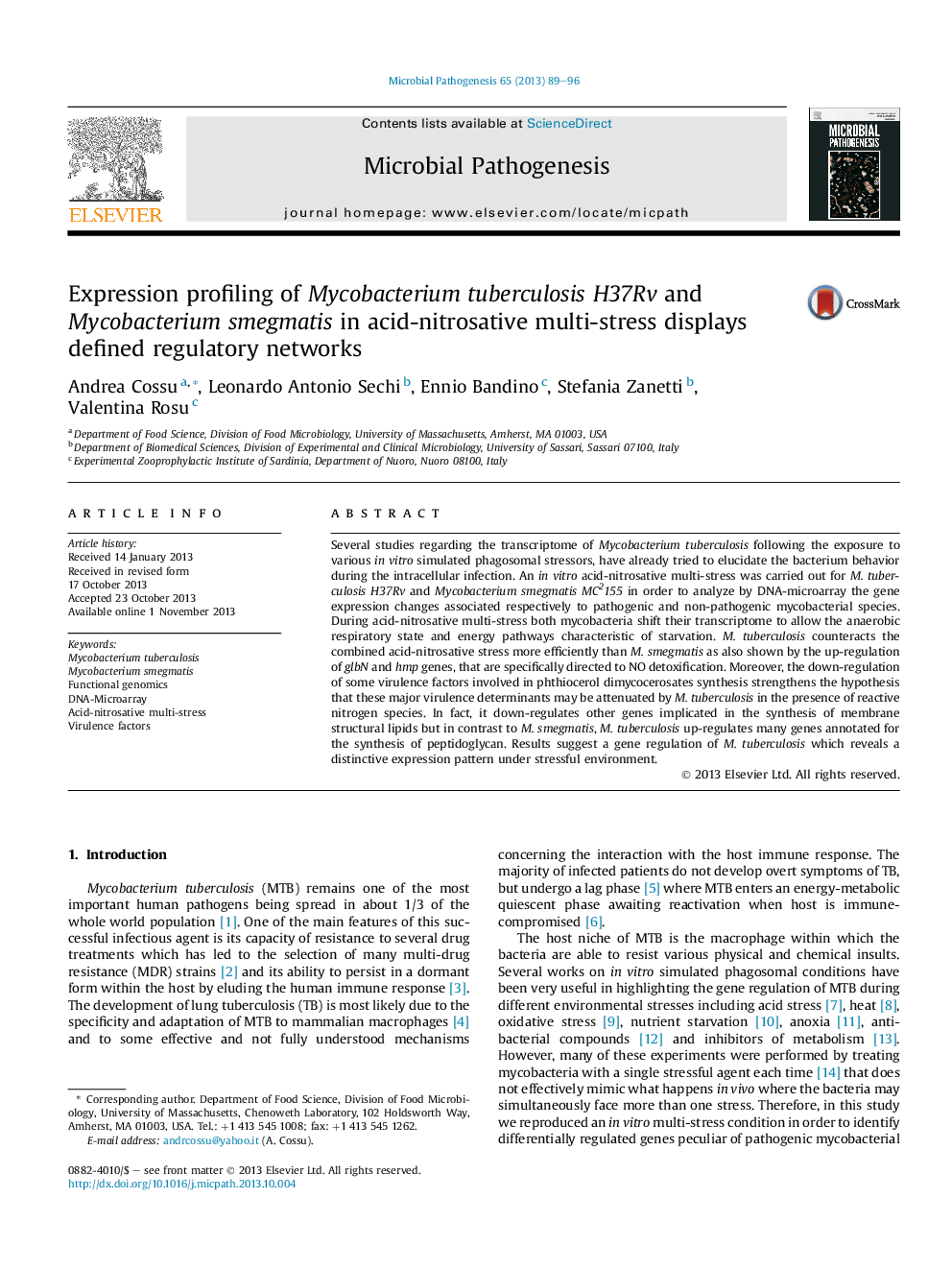| Article ID | Journal | Published Year | Pages | File Type |
|---|---|---|---|---|
| 3416626 | Microbial Pathogenesis | 2013 | 8 Pages |
•Transcriptomes of Mycobacterium tuberculosis and Mycobacterium smegmatis were analyzed during multi-stress.•Acid-nitrosative multi-stress induced in mycobacteria an anaerobic respiratory state.•Multi-stress activated genes involved in energy pathways characteristic of starvation.•Both mycobacteria repressed genes involved in the synthesis of membrane lipids.•Only M. tuberculosis up-regulated genes annotated for the synthesis of peptidoglycan.
Several studies regarding the transcriptome of Mycobacterium tuberculosis following the exposure to various in vitro simulated phagosomal stressors, have already tried to elucidate the bacterium behavior during the intracellular infection. An in vitro acid-nitrosative multi-stress was carried out for M. tuberculosis H37Rv and Mycobacterium smegmatis MC2155 in order to analyze by DNA-microarray the gene expression changes associated respectively to pathogenic and non-pathogenic mycobacterial species. During acid-nitrosative multi-stress both mycobacteria shift their transcriptome to allow the anaerobic respiratory state and energy pathways characteristic of starvation. M. tuberculosis counteracts the combined acid-nitrosative stress more efficiently than M. smegmatis as also shown by the up-regulation of glbN and hmp genes, that are specifically directed to NO detoxification. Moreover, the down-regulation of some virulence factors involved in phthiocerol dimycocerosates synthesis strengthens the hypothesis that these major virulence determinants may be attenuated by M. tuberculosis in the presence of reactive nitrogen species. In fact, it down-regulates other genes implicated in the synthesis of membrane structural lipids but in contrast to M. smegmatis, M. tuberculosis up-regulates many genes annotated for the synthesis of peptidoglycan. Results suggest a gene regulation of M. tuberculosis which reveals a distinctive expression pattern under stressful environment.
